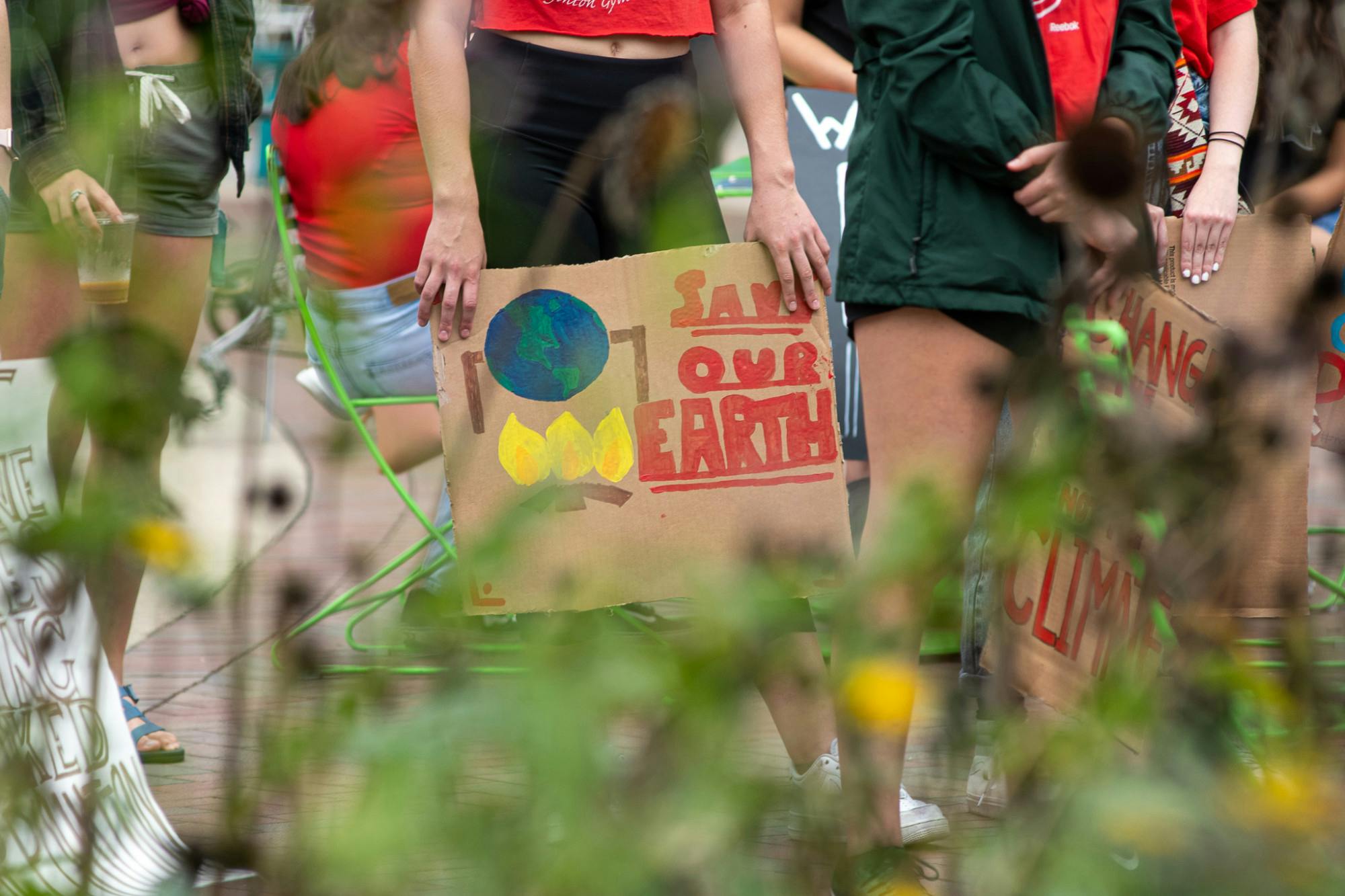Comparative cultures and politics sophomore Matthew Anderson was born and raised in Southern California and called it home for most of his life. But, as drought and fire season became worse every year, and as California’s Woolsey fire burned into early 2019, Anderson’s family decided it was time for a change.
“Michigan was where we decided to move to,” Matthew Anderson said. “The fire was the catalyst.”
Like many Americans, and many across the globe, Matthew has felt the impacts of climate change on a real and personal level. Research has shown that the size and intensity of wildfires, as well as the length of wildfire season, are increasing as the planet warms. Disasters like the Woolsey fire, and the displacement that these disasters cause, are just two of the climate-related problems touched on by a new report released late last month by the Intergovernmental Panel on Climate Change, or IPCC.
The IPCC serves as “the United Nations body for assessing the science related to climate change,” according to its website.
The report, the most recent from this body since 2014, details negative effects and vulnerabilities made worse by human-induced climate change. Besides displacement, the report also states how problems like the presence of infectious diseases, malnutrition, negative mental health and flood/storm damages can be attributed to climate change with “medium to high degrees of confidence.”
“Reading it kind of just leaves me with a sinking feeling that nothing's getting better,” Matthew Anderson said.
Hazel Anderson, an integrative biology Ph.D. student, studies plant conservation and biodiversity under climate change. To her, the report only served as a confirmation of what she already knew.
“As someone who's been learning about climate change for a while (and) has a background in climate impacts, it didn't really surprise me what the report said,” Hazel Anderson said. “I think a lot of people would agree that we've kind of known a lot of this stuff for a while.”
Social relations and policy seniors Troy Distelrath and Noah Doederlein both felt a similar familiarity with the negative impacts of climate change. But these feelings were not without anxieties.
“If I'm being completely honest, every few months it seems like there's another report that's spelling out pretty similar things, that we are running out of time to really take action on climate change,” Doederlein said.
Doederlein said that we still have the possibility of immediate and bold action, but that we are already feeling the effects of climate change.
“It's not going to take much more, just even warming tenths of a degree is going to have the possibility to increase flooding and fires to a dramatic extent,” Doederlein said.
“A lack of surprise and terror are not supposed to go together, right?” Distelrath said. “I feel both at the same time here, a complete lack of surprise and a complete terror for what is to come if major policy and societal change doesn’t happen.”
Both Doederlein and Distelrath are members of the student environmental activist group Sunrise MSU. The group has long called on MSU to divest from investments in companies linked to fossil fuels.
Despite feeling that the report was nothing new, Hazel Anderson said it could reiterate the importance of climate issues to policymakers and to the less informed.
Additionally, she said this year’s report was the first to mention colonialism and indigenous knowledge. The report acknowledges that vulnerability to climate issues can vary due to “ongoing patterns of inequity such as colonialism,” and notes the value of indigenous climate knowledge.
Matthew Anderson highlighted the global aspects of the report as especially important, and he said there should be an increased media focus on vulnerable populations outside of the United States. Similarly, Hazel Anderson emphasized that climate justice, or ensuring environmental benefits and burdens are shared fairly, is important alongside climate action.
Some students agreed that working on a local level is important to mitigate the climate crisis.
Doederlein referenced improving transportation infrastructure, localizing food sources and finding solutions to problems of agricultural runoff in Michigan as important local steps.
Hazel Anderson said there are many important policy changes that can be made.
Support student media!
Please consider donating to The State News and help fund the future of journalism.
“Really making sure that your local representatives are really representing how you feel … even city council, the Board of Trustees at MSU,” she said. “They might not get as much attention as some of the national politicians, but they still make important decisions that have an impact on our local level. And if lots of different local entities in different cities all make changes, they add up and can create a larger wave of change.”
Matthew Anderson said he thinks at this point, the only adequate action will come from the federal government, including a complete overhaul of our energy systems.
“We rely far too heavily still on fossil fuels,” he said. “I think the biggest step would be the immediate transition towards renewable and cleaner energy.” Matthew Anderson also acknowledged the importance of activism.
“It’s a very small amount of people that are doing this to the planet,” he said. “We have the power to overpower it and change things before it’s too late, but we need to collectively organize and fight for it.”
Discussion
Share and discuss “'Nothing’s getting better': MSU students unfazed by United National climate report outlook” on social media.







